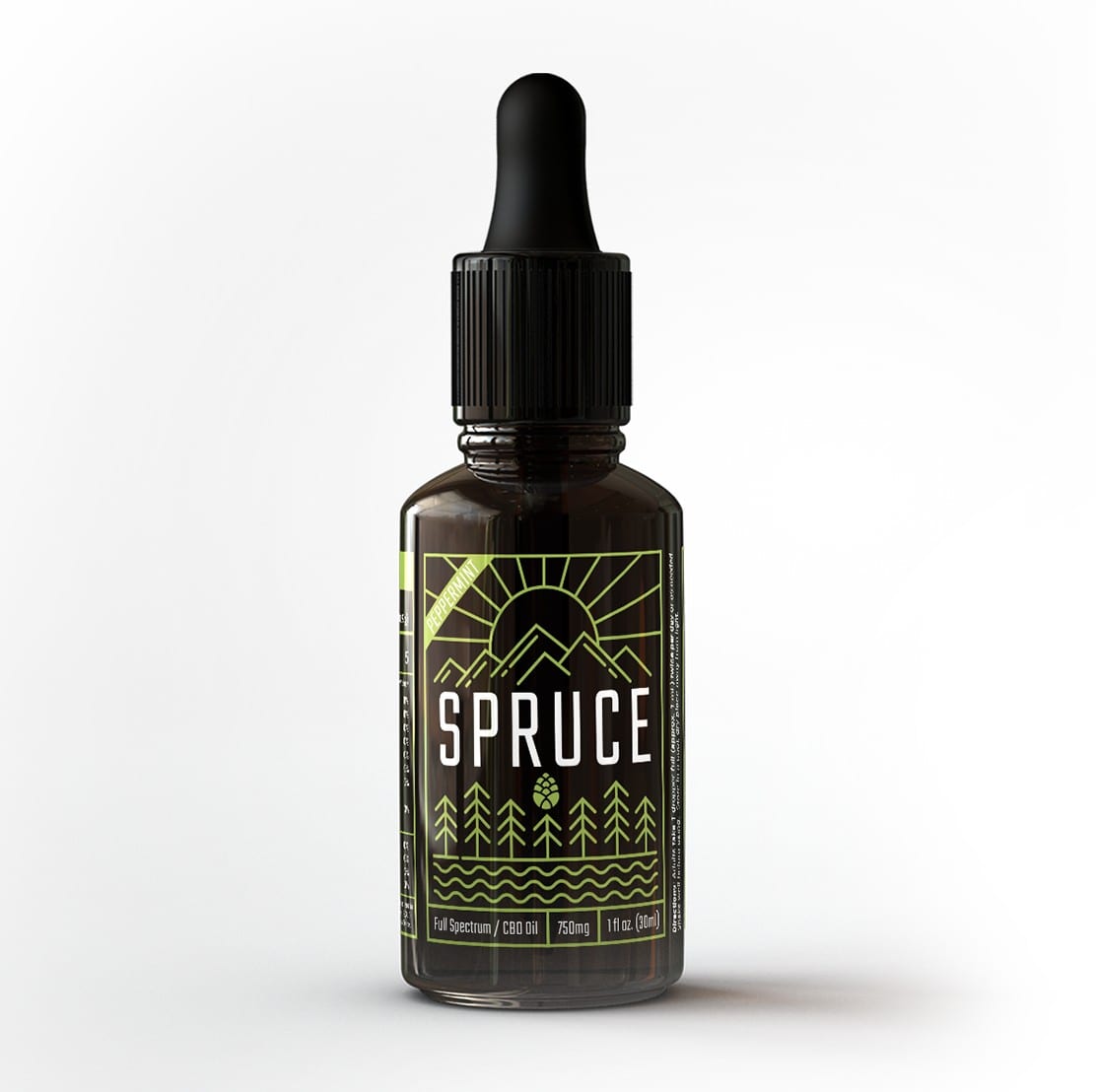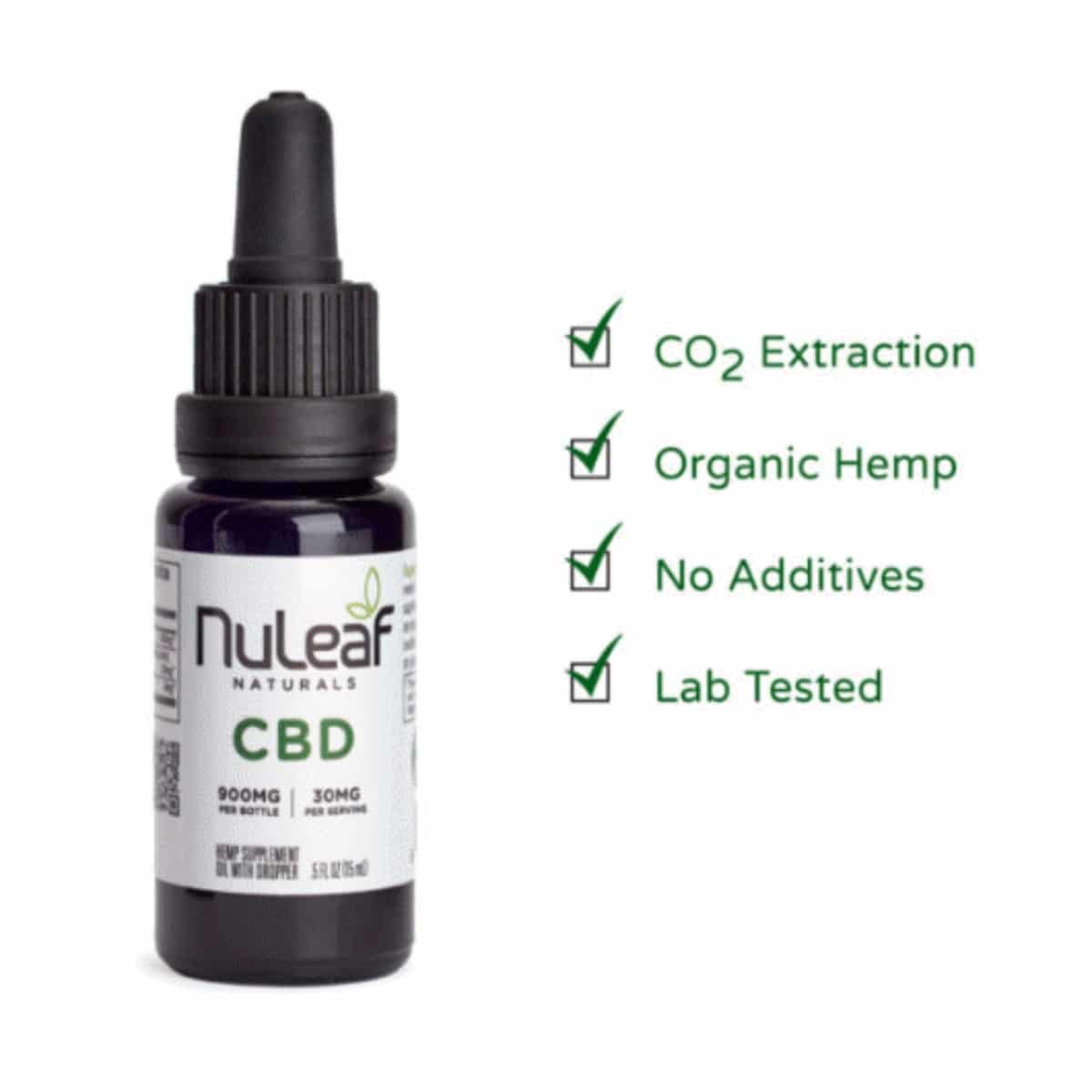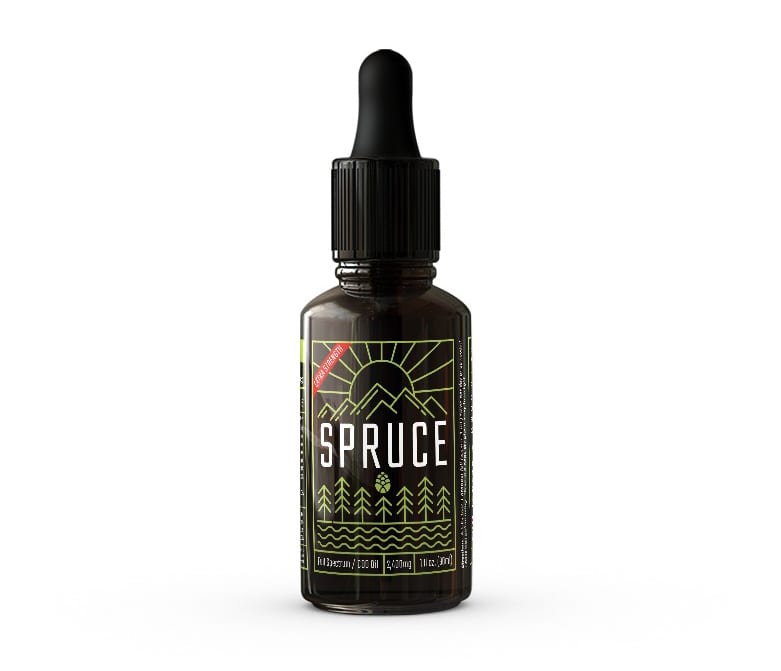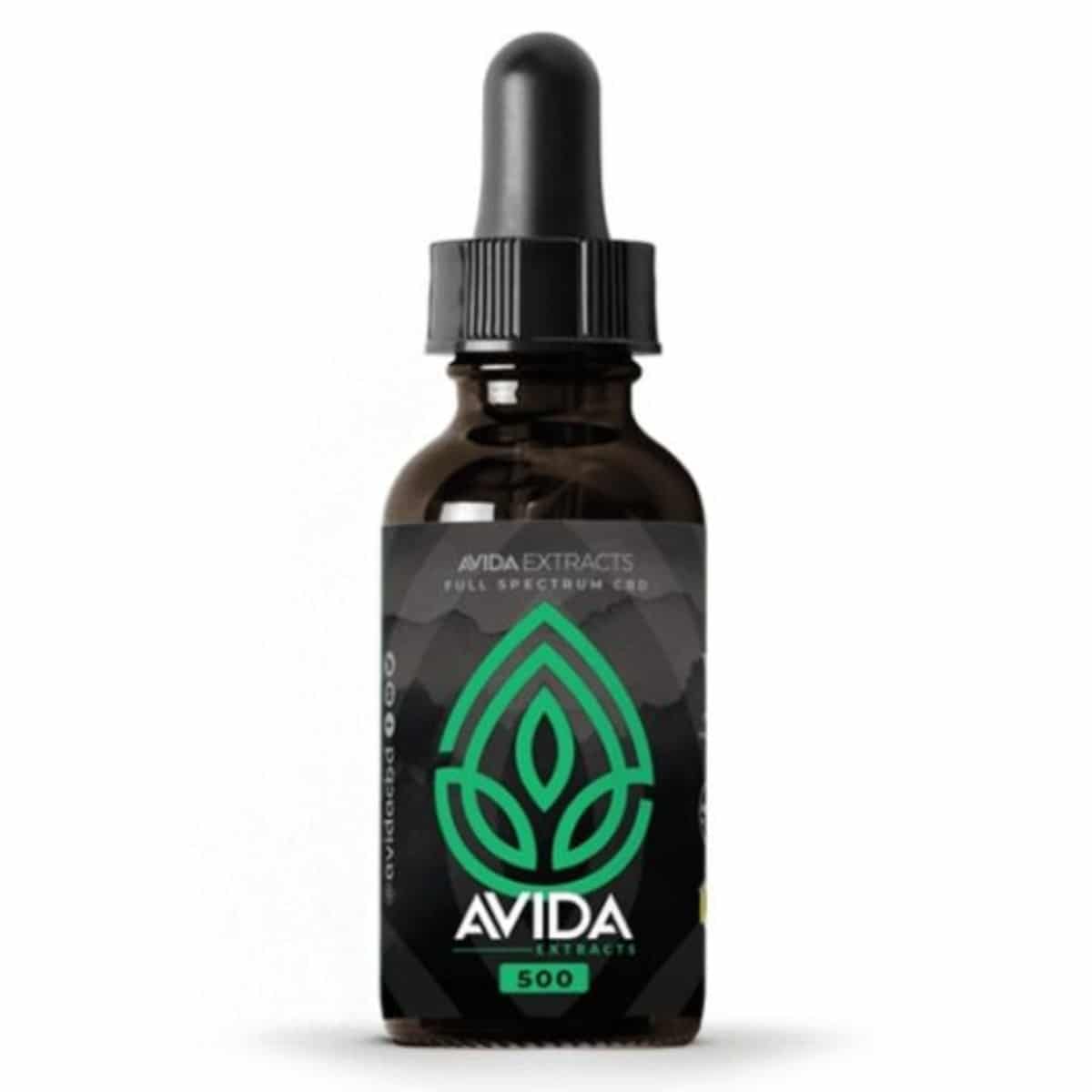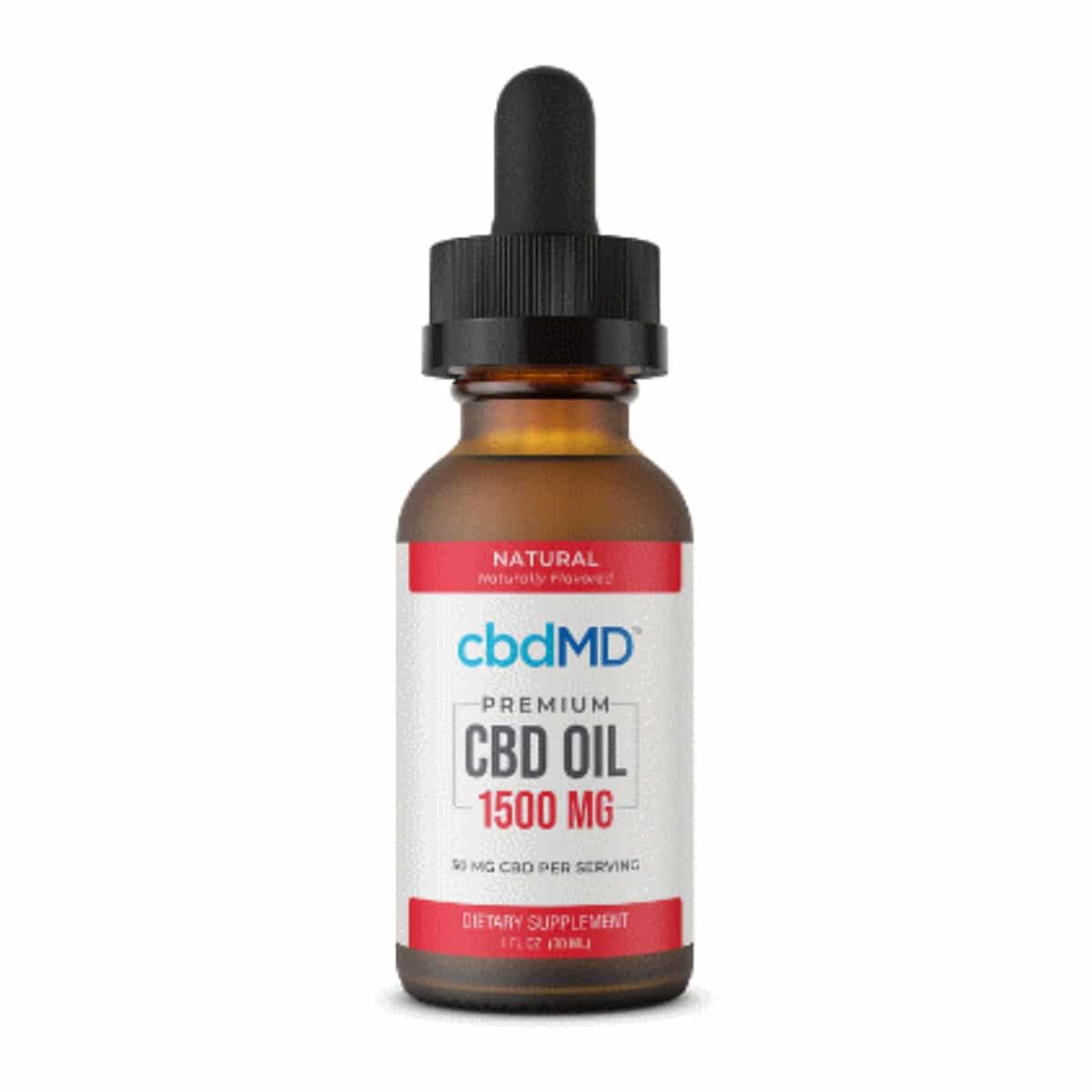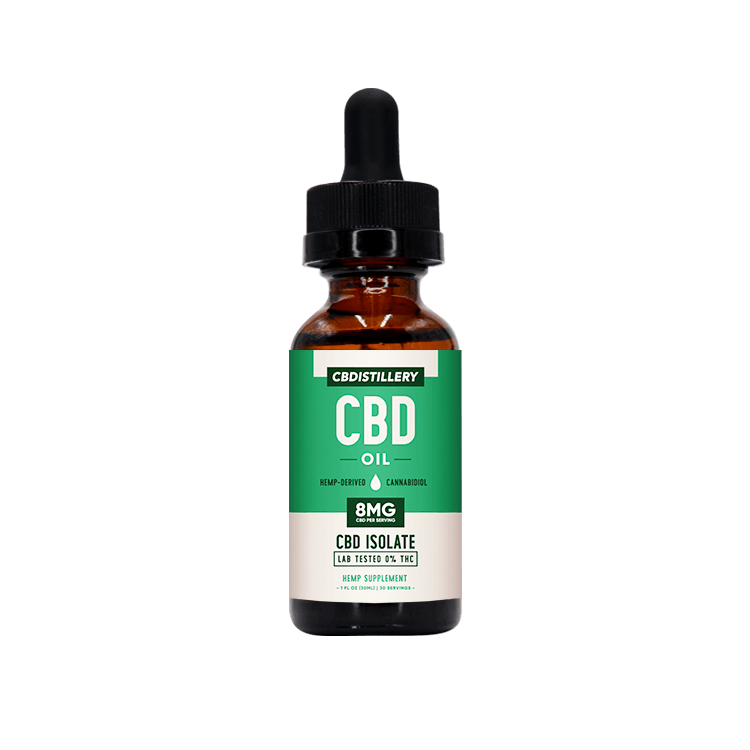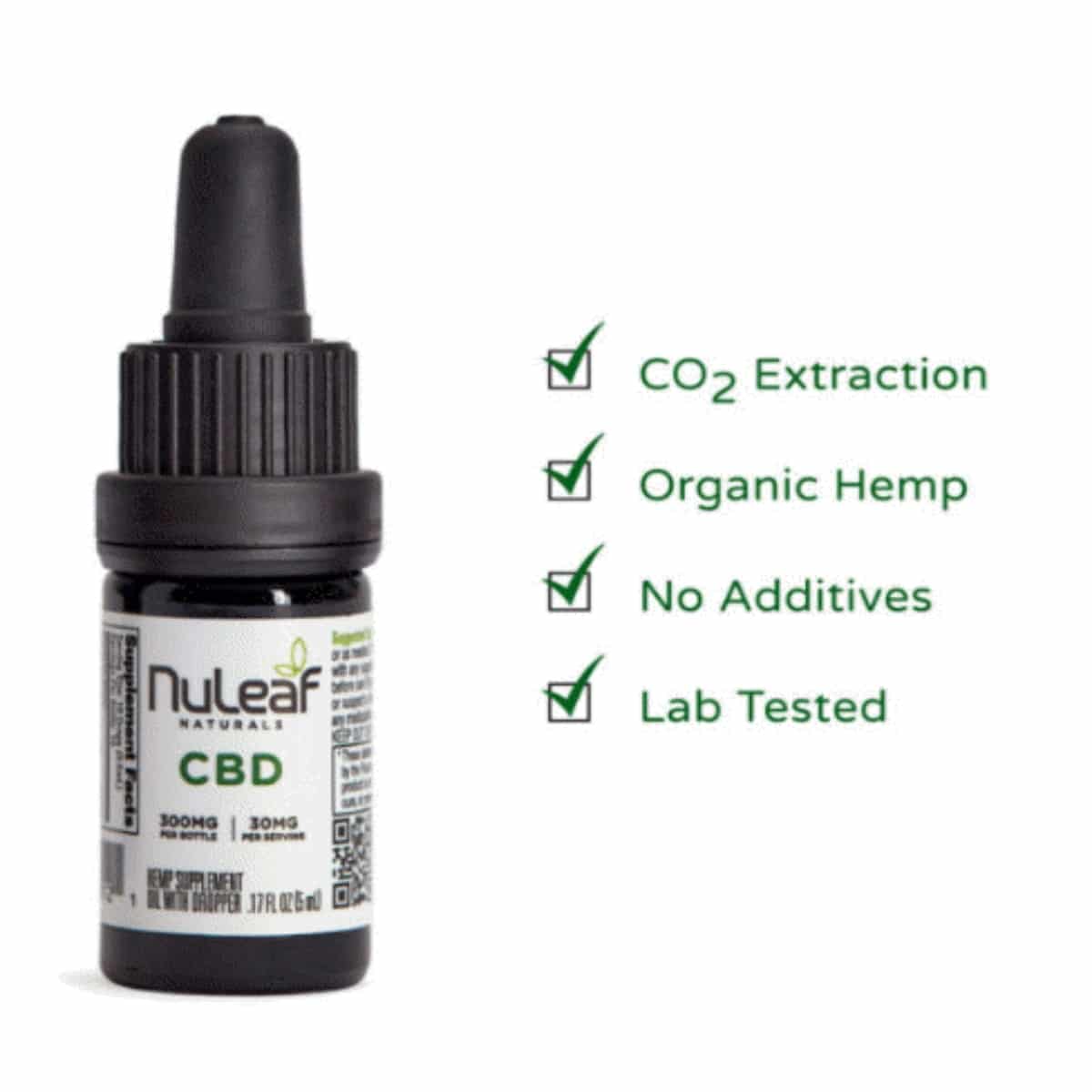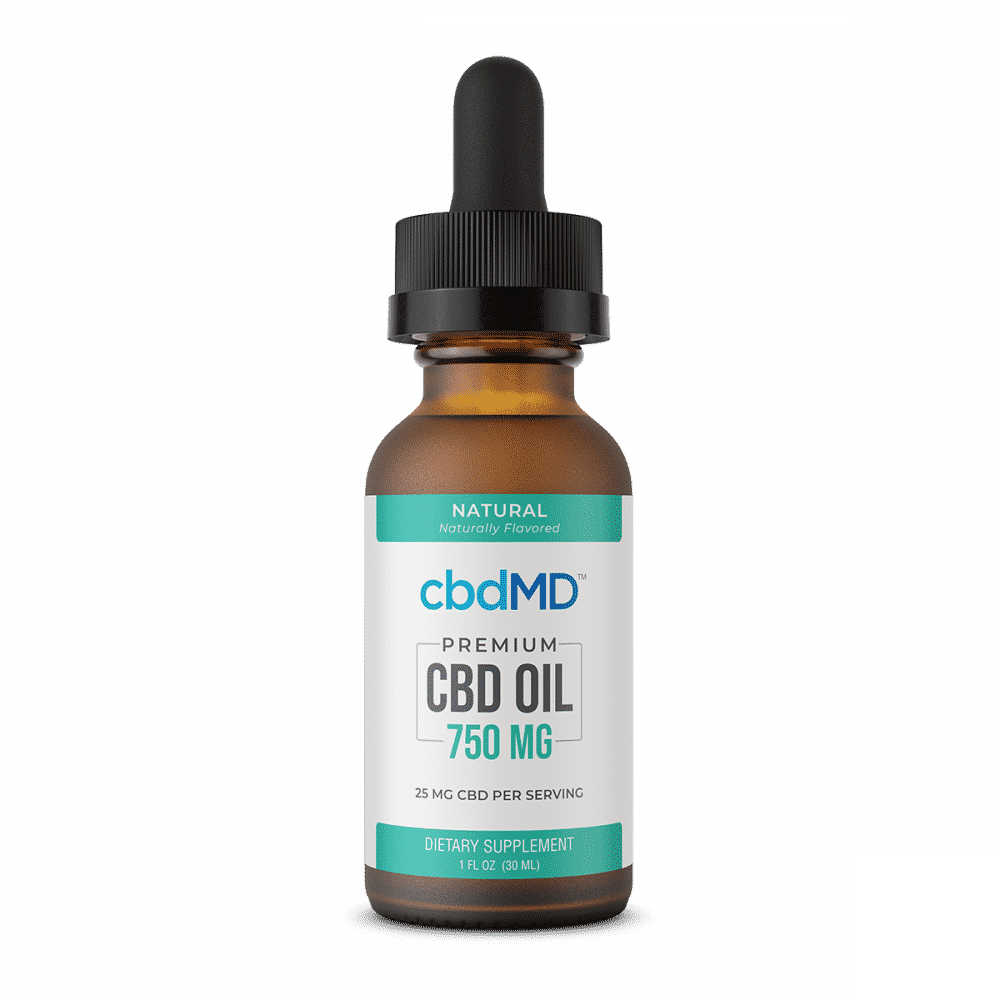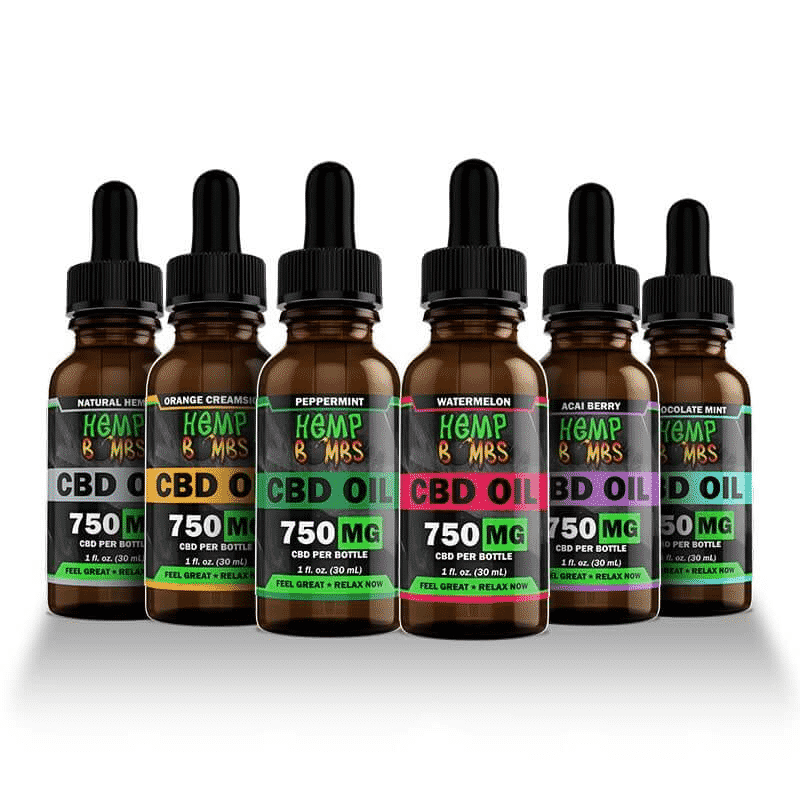Best CBD Oil for ADHD
Are your prescribed medications for attention-deficit/hyperactivity disorder (ADHD) often accompanied by unwanted side effects? Here are the best cannabidiol (CBD) oils to try as an alternative for some ADHD symptoms.
Best CBD Oil for ADHD 2025
- Spruce 750mg Lab Grade CBD Oil Editor's Pick
- NuLeaf Naturals 900mg Full Spectrum Hemp CBD Oil Best Organic
- Spruce 2400mg Lab Grade CBD Oil Editor's Pick
- Avida Full Spectrum CBD Oil Tincture 500mg Best Seller
- cbdMD CBD Oil Tincture Natural 1500mg Best Natural Alternative
- CBDistillery THC Free CBD Oil Tinctures Best THC-Free
- cbdMD CBD Oil Tincture Natural 750mg Best Customer Rated
- NuLeaf Naturals 300mg Full Spectrum Hemp CBD Oil Best Starter
- Hemp Bombs 750mg CBD Oil Best Flavor Range
Compare the Best CBD Oil for ADHD in 2022
Best CBD Oil for ADHD
1. Spruce 750mg Lab Grade CBD Oil
cbdc overall score
4.8
CBDC Evaluation Table/Score
| Pros | Cons |
|---|---|
|
Mid-strength |
No other flavors |
|
Natural peppermint flavor |
|
|
Made from 100% organic and natural ingredients |
Overview
Each bottle of the 750mg CBD oil tincture contains 25mg of CBD per dropper full. The oil is peppermint flavor to mask any unpleasant tastes related to CBD.
2. NuLeaf Naturals 900mg Full Spectrum Hemp CBD Oil
cbdc overall score
5.0
CBDC Evaluation Table/Score
| Pros | Cons |
|---|---|
|
Pure CBD hemp |
No other flavors |
|
All natural |
|
|
Approximately 300 drops total |
Overview
Natural remedy for various illnesses. NuLeaf Naturals’ CBD oil is a whole-plant extract containing a full spectrum of naturally occurring synergistic cannabinoids and terpenes.
3. Spruce 2400mg Lab Grade CBD Oil
cbdc overall score
5.0
CBDC Evaluation Table/Score
| Pros | Cons |
|---|---|
|
Extra Strength |
Tastes bitter |
|
No artificial flavoring or colors |
No THC-free option |
|
Made from 100% organic and natural ingredients |
Overview
The largest bottle of CBD oil that Spruce offers contains 2,400mg of CBD. This is full-spectrum CBD oil, which is the maximum possible potency. Each high potency dropper full contains 80mg of CBD. There are no flavorings in it, which allows for the most CBD to fit in the 30ml bottle.
4. Avida Full Spectrum CBD Oil Tincture 500mg
cbdc overall score
4.6
CBDC Evaluation Table/Score
| Pros | Cons |
|---|---|
|
Light Spearmint flavor |
No other flavor |
|
Non-THC, Non-detected in drug test |
Overview
Avida Extracts Full Spectrum CBD oil is the latest iteration of the brand’s advanced Avida CORE Spectrum technology. They use a proprietary full spectrum blend, resulting in the highest naturally occurring Phyto-cannabinoids and Terpenes with THC (<0.3) to support your health.
5. cbdMD CBD Oil Tincture Natural 1500mg
cbdc overall score
4.7
CBDC Evaluation Table/Score
| Pros | Cons |
|---|---|
|
Various delicious flavors to choose from |
cbdMD uses MCT as its carrier oil so individuals who are allergic with coconuts should consider other brand options |
|
Has vegan, organic, and gluten-free ingredients |
|
|
Free shipping for this particular product within USA |
|
|
World-class customer service team |
Overview
cbdMD’s CBD oil tinctures are made using only CBD sourced from medical hemp and MCT oil as a carrier oil. Tinctures are offered in orange, mint, natural, and berry flavors. Safe for daily use, the oil tinctures are packaged with a built-in rubber dropper to adjust CBD dosage easily. The packaging is made to be easy to transport and discreet to use.
6. CBDistillery THC Free CBD Oil Tinctures
cbdc overall score
4.4
CBDC Evaluation Table/Score
| Pros | Cons |
|---|---|
|
60-Day Satisfaction Guarantee |
Dropper is a bit shaky |
|
Various strengths |
|
|
Oil extracted from aerial plant parts of US grown industrial hemp |
|
|
Sourced from non-GMO industrial hemp grown in the USA through natural farming practices |
Overview
CBDistillery’s Isolate CBD Oil Tinctures harness the power of pure CBD. CBD Isolate Oil Tinctures include 0.0% THC. When you use CBDistillery CBD Isolate Oil Tinctures, you can be assured you’re using the highest quality CBD on the market.
7. NuLeaf Naturals 300mg Full Spectrum Hemp CBD Oil
cbdc overall score
4.6
CBDC Evaluation Table/Score
| Pros | Cons |
|---|---|
|
Pure CBD hemp |
No other flavors |
|
All natural |
A bit pricey compared to competitors |
|
Approximately 100 drops total |
Overview
This is one of several concentrations from NuLeaf Naturals. As the lowest concentration, it is the company’s best option for those new to CBD oil. The product is lab-tested and fully organic. It is full-spectrum, so it contains THC in small quantities.
8. cbdMD CBD Oil Tincture Natural 750mg
cbdc overall score
4.4
CBDC Evaluation Table/Score
| Pros | Cons |
|---|---|
|
Vegan and Gluten free |
Does not ship internationally |
|
Has a third-party lab test |
|
|
Wide variety of CBD strengths and sizes |
Overview
A 750mg bottle of cbdMD’s Broad Spectrum Oil Tincture does not contain THC. It also has a fairly wide flavor range which is perfect for those who prefer other taste. Vegan consumers are considered since cbdMD offers Vegan products. Aside from all of that, another reason why people love cbdMD is because it’s free from harmful chemicals.
9. Hemp Bombs 750mg CBD Oil
cbdc overall score
3.9
CBDC Evaluation Table/Score
| Pros | Cons |
|---|---|
|
Wide variety of flavors |
Incomplete information about the product |
|
Lab test results are complete |
Does not ship to all international countries |
|
30-day money-back guarantee |
Overview
Hemp Bombs offer CBD Oil Tinctures that come in a 30ml bottle containing 750mg of CBD. They provide a wide range of flavors perfect for those that have a knack for sweets. Consumers can safely intake this because it’s free of chemicals and pesticides. Hemp Bombs also offer a 20% off on products upon subscription.
How CBD Helps With ADHD
Although some anecdotal evidence states that CBD helps with ADHD symptoms, there is limited research on the use of CBD for treating ADHD. Most studies surrounding CBD and ADHD focus on cannabis use rather than CBD(1).
Studies on cannabis involve a wide range of compounds found in the Cannabis sativa plant, including the psychoactive tetrahydrocannabinol (THC) compound. Meanwhile, CBD studies focus on CBD, the cannabis plant’s nonpsychoactive compound.
People with ADHD exhibit an ongoing pattern of inattention, hyperactivity, and impulsivity that interferes with functioning or development(2).
CBD works to help with ADHD by engaging with the endocannabinoid system (ECS), a biological network consisting of cannabinoid receptors known as CB1 and CB2.
CB1 receptors are mainly found in the brain and related to different cognitive functions. Meanwhile, CB2 receptors are more abundant in the immune system and connected to pain and inflammation.
Brain receptors are responsive to neurotransmitters, like serotonin and dopamine. The receptors also respond to chemical messengers outside the body, such as phytocannabinoids.
CBD and THC are two phytocannabinoids that come from the cannabis plant. CBD does not produce mind-altering effects, while THC is a compound associated with the feeling of being high.
A study stated that people with ADHD often have low levels of dopamine(3). CBD has been demonstrated to regulate the dopamine system’s “reward” pathway(4).
The regulation of the reward pathway may enhance cognitive processes, such as attention, learning, mood, and memory(5).
Researchers hypothesized that CBD activates the body’s serotonin receptors, causing the brain to release dopamine(6). This mechanism is similar to how medications work for conditions like ADHD, anxiety, and depression.
Another study was conducted on the effects of CBD on animal models. The test subjects were selected for their AMPAR deficiency, making them suitable models for hyperactivity disorders, like ADHD(7).
AMPAR (α-amino-3-hydroxy-5-methyl-4-isoxazole propionic acid receptor) is widely distributed and abundant in the central nervous system. AMPA receptors facilitate fast communication between nerve cells or neurons(8).
Researchers observed that CBD reduced manifestations of hyperactivity when introduced into the hippocampus, which is the brain’s region responsible for spatial learning and adaptation.
Thus, it was suggested that CBD may inhibit hyperactive networks in the hippocampus and other parts of the brain(9).
Benefits of Using CBD Oil for ADHD
Despite limited research on CBD as a potential treatment for ADHD, several studies suggested that CBD may help manage specific symptoms of ADHD.
Some people with ADHD may struggle with anxiety, making their symptoms worse(10).
Studies showed that CBD possessed anxiety-reducing properties that may help those with ADHD and anxiety disorders, including generalized anxiety disorder (GAD), post-traumatic stress disorder (PTSD), and social anxiety disorder (SAD)(11).
Behaviors linked to autism spectrum disorder (ASD) may resemble those of ADHD. These behaviors include hyperactivity, rage, and self-injury.
In a study, parents administered cannabidiol oil to their children with ASD. Findings showed reduced symptoms of hyperactivity in more than half of the participants, while rage and self-injury improved in about 36 out of the 53 children(12).
A 2013 study also explored ADHD subtypes and cannabis use. The three major subtypes of ADHD are inattentive and distractible, impulsive/hyperactive, and combined(13).
Based on the findings, people with hyperactivity and impulsivity were more likely to self-medicate with cannabis than people with inattentive subtypes of ADHD(14).
A 2017 randomized controlled trial looked at cannabis users with ADHD. The researchers observed a minor improvement in brain function and a reduction in ADHD symptoms(15).
However, the slight improvement of these symptoms was not enough to consider cannabinoids as a more effective treatment than placebo.
CBD Dosage and Delivery Methods for ADHD
Dosage
There are currently no official guidelines for CBD dosage for various medical conditions, including ADHD(16).
Researchers have observed that adults can tolerate CBD doses of up to 1,500mg per day, while the tolerated dosage for children is significantly less(17).
A study also noted that a single 300mg dose of CBD may be sufficient to reduce anxiety, a mental health condition often seen in people with ADHD(18).
However, further research is necessary to determine a safe and effective dose for ADHD symptoms.
If you are taking CBD oil for the first time, it is advisable to start with the lowest possible dosage to let your body adjust to CBD. Take note of any adverse effects you may experience.
Once your body is used to CBD oil, gradually increase the dosage to maximize the potential therapeutic effects of CBD.
Get medical advice from a trusted health professional before buying and taking CBD oil for ADHD. The doctor will let you know whether you can use CBD for ADHD symptoms and how you can take CBD properly.
Methods of Delivery
There are no official recommendations on taking CBD for ADHD due to insufficient research(19). Various products that may help with symptoms of ADHD include CBD capsules, tinctures, edibles, gummies, topicals, and vape products.
CBD tinctures may be taken using the sublingual method. It involves putting a few drops of CBD oil under the tongue with a dropper and waiting for a few seconds before swallowing the oil.
The sublingual method enables you to control the amount of CBD you are taking. The approach also allows CBD to be absorbed directly into your bloodstream.
CBD effects start to kick in around 10 to 15 minutes, with the effects lasting up to a few hours(20).
CBD oil may be ingested via capsules and CBD-infused edibles, such as gummies, brownies, and chocolates. CBD-infused beverages, like coffee, juices, and weight loss teas, are also available.
The ingestion method may take 30 to 60 minutes for CBD to kick in, while the effects may last up to six hours(21).
Inhaling CBD through vaping or smoking delivers the compound more quickly than other delivery methods(22). In the inhalation method, CBD is sent directly to the lungs and rapidly absorbed into the bloodstream.
The effects of vaping CBD may occur in minutes, while the effects last approximately one to four hours(23).
However, there is an increasing concern among medical professionals regarding the safety of vaping CBD. Studies have found that vaping has several side effects, including coughing, dry mouth and throat, and shortness of breath(24).
Vape use may also pose risks to the lungs and cause lung problems, such as collapsed lung and lipoid pneumonia(25).
CBD products may also be applied directly to the skin to promote soothing effects and pain relief(26). Topical products include CBD-infused lotions, gels, creams, salves, and balms.
CBD-infused products are absorbed through the surface of the skin. However, the topical method is not enough to reach the bloodstream, which provides a limited absorption of CBD(27).
CBD and Alternative Treatments for ADHD
People have been considering ADHD treatment alternatives as the typically prescribed medications often have side effects. Some treatment options to manage symptoms of ADHD include stimulants, non-stimulants, or antidepressants(28).
About 70% to 80% of children diagnosed with ADHD are being treated with stimulants (drugs that stimulate the central nervous system). Children with ADHD also have fewer ADHD symptoms when taking stimulants(29).
However, these medications may be accompanied by adverse effects, such as lack of appetite, seizures, sleep disturbances, heart or psychiatric problems, and an increased risk of medication abuse(30).
Studies have shown that the following alternative approaches may be effective in relieving ADHD symptoms.
Exercise
Exercise or any physical activity releases hormones that may improve memory, mood, concentration, and learning(31).
This activity may also boost attention, enhance brain activity, and modulate the neurotransmitter systems of individuals with ADHD.
Children with ADHD are often low on brain chemicals. Regular exercise helps induce various brain chemicals, including serotonin, dopamine, norepinephrine, and gamma-aminobutyric acid (GABA)(32).
Research also showed that cognitively, socially, and aerobically challenging exercises help alleviate the symptoms of ADHD and facilitate healthy cognitive development(33).
Omega Fatty Acids
Omega fatty acids are usually available in food and supplements. These essential fatty acids help brain neurons communicate more effectively(34).
A lack of communication between brain neurons may result in ADHD-like symptoms, such as having trouble focusing and impulsivity(35).
Multiple studies reported the benefits of omega fatty acid supplementation in various dosages for reducing attention difficulties, anxiety, and behavioral problems of children with ADHD(36).
In a clinical trial, children with ADHD were administered high daily doses of fish oil. Findings showed a significant improvement in children’s attention and behavior and reduced their hyperactivity and defiance(37).
Diet Changes
Children with ADHD are more likely to have food allergies and sensitivities(38). Research suggested that hypersensitivity to certain foods and additives may affect children’s behavior and exacerbate ADHD symptoms(39).
Regular meals and snacks consisting of low-glycemic index proteins, carbohydrates, and essential fatty acids (EFAs) are advised for individuals with ADHD. Some foods rich in EFAs include fish, flax seeds, walnuts, and almonds.
Meanwhile, refined sugars, carbohydrates, and processed foods with additives should be avoided or eliminated from the diet.
Studies have suggested that a restricted elimination diet (“few foods approach”) for children with ADHD may be effective. The children who followed the dietary intervention showed at least 50% improvement in their behavior(40).
However, it is advised to consult with a doctor or dietitian first before following a restrictive diet.
CBD
Studies suggested that CBD may help manage some symptoms associated with ADHD, such as anxiety and depression.
CBD oil was observed to have anxiolytic (anti-anxiety) properties to manage various anxiety disorders(41). CBD may also have antidepressant effects to help with depression(42).
However, further studies are needed to explore CBD’s impact and long-term effects on ADHD symptoms.
Risks and Side Effects of Using CBD for ADHD
Although the World Health Organization (WHO) says that “CBD is generally well-tolerated with a good safety profile,” adverse reactions may still occur upon CBD use(43).
The possible side effects of CBD may include drowsiness, fatigue, nausea, dry mouth, loss of appetite, changes in mood and alertness, gastrointestinal problems, diarrhea, and liver damage(44).
In one study, CBD was observed to increase the risk of liver toxicity in mice that received high amounts of CBD(45).
It is also possible for CBD to interact with other prescription medications, dietary supplements, or over-the-counter (OTC) drugs. Some examples of ADHD medications include Adderall, Ritalin, Focalin, Vyvanse, and Concerta(46).
The cytochrome P450 (CYP450) is a family of enzymes responsible for metabolizing several cannabinoids. A study showed that CBD impacts how the enzymes metabolize some medications(47).
If the drugs are metabolized too quickly, there may not be enough medication in the system to improve health conditions or treat specific medical issues.
If the drugs are metabolized too slowly, there may be more medication in the system than intended, resulting in harmful and undesirable side effects.
You should avoid taking CBD alongside medications with a grapefruit warning. The acid found in grapefruit may interfere with the absorption of ADHD medications in the body(48).
Research also noted that many potential long-term effects of CBD are unknown. It is still unclear whether CBD affects the body’s hormones, which may be a concern for developing young adults(49).
Moreover, the United States Food and Drug Administration (FDA) warns consumers against unapproved cannabis products, like CBD(50).
CBD products have not been subjected to FDA approval because CBD is not an ingredient considered under FDA’s Over-the-Counter (OTC) Drug Review(51). Thus, these products may put the safety and health of consumers at risk.
To date, Epidiolex is the only cannabis-derived product approved by the FDA. Epidiolex contains a purified form of CBD to treat two rare forms of epilepsy, such as Lennox-Gastaut syndrome (LGS) or Dravet syndrome(52).
How to Choose the Best CBD Oil for ADHD
It is important to know the three types of CBD oil before purchasing any CBD product for ADHD: full-spectrum, broad-spectrum, and CBD isolates.
Full-spectrum CBD oil contains the naturally occurring compounds found in the Cannabis sativa plant, such as CBD, THC, terpenes, fatty acids, essential oils, and flavonoids. These compounds create a synergy called the entourage effect.
A study indicated that the compounds and phytochemicals in full-spectrum CBD may offer a high potency CBD oil(53). Researchers also noted that full-spectrum CBD may provide therapeutic benefits and wellness in animals with chronic pain.
Broad-spectrum CBD oil contains multiple cannabinoids and other compounds in the cannabis plant. However, the THC compound is removed from the CBD extract.
Broad-spectrum CBD is recommended if you want the same components as full-spectrum CBD without the risk of psychoactive effects.
CBD isolate is pure CBD oil because it contains cannabidiol only. Isolates are free from THC, terpenes, fatty acids, and any other cannabinoids from the hemp plant.
Although both are derived from hemp, hempseed oil and hemp oil have significant differences. Hemp oil is obtained by extracting the oil from the hemp plant.
Meanwhile, hempseed oil is extracted from raw hemp seeds. Hempseed oil may have trace amounts of CBD or none at all.
The following factors are also essential in choosing safe, reliable, and high-quality CBD products for ADHD:
- Know the CBD oil product’s source of hemp. Some of the hemp sources in the United States are Colorado, Oregon, California, and Kentucky.
- Choose quality products derived from non-GMO, organic hemp.
- Identify which extraction method is used in the CBD product. CO2 is one of the most commonly used ways of extracting CBD.
- Purchase CBD products from reliable sources. CBD brands should provide consumers with third-party lab reports to ensure the absence of pesticides, heavy metals, bacteria, and residual solvents.
- Compare the CBD company’s claims about products’ potency with third-party lab results.
- Look for certification codes in CBD products. Several certification authorities only approve certain products after thorough screening tests.
- Consult with a medical professional experienced in CBD use before purchasing any CBD product.
- Before buying from a physical store, check whether a dispensary or retailer is authorized by the government to sell CBD.
- When purchasing from an online store, research the CBD brand and read product reviews from customers.
- Know the exact legal stipulations applicable to CBD in the state where you will purchase and use the product.
Legality of CBD
Under the Farm Bill of 2018, hemp-derived CBD oil containing not more than 0.3% THC is legal. This law also allows the growth, production, and manufacturing of hemp on the federal level(54).
Meanwhile, the legal status of CBD may vary for different states. Many states have passed laws that legalize CBD and cannabis-related products, while other states may also have restrictions on the THC levels found in the CBD product(55).
Individuals may legally possess, purchase, or use medical cannabis if they are registered with a state’s medical marijuana program(56).
Some of the program’s requirements include an official diagnosis from a licensed physician that the individual has a qualifying medical condition and a prescription allowing the use of cannabis-rich oil.
Product Frequently
Asked Questions
-
How can CBD help with ADHD?
According to a study, CBD may help with ADHD by regulating the reward pathway of the dopamine system(57). This action may result in improved memory, attention, and mood.
-
What are the benefits of CBD for ADHD?
Researchers reported that CBD oil reduced symptoms associated with ADHD, including hyperactivity and anxiety(58).
-
Is there any evidence that CBD can make ADHD worse?
ADHD and cannabis are both independently associated with impaired attention, functioning, and inhibition. Many researchers also suggested that marijuana use may worsen existing ADHD symptoms(59).
However, there is not enough research to support or contradict the researchers’ statement(60).
-
Will CBD interact with any current medication I may be taking for ADHD?
Treatment of ADHD includes Adderall, Ritalin, Focalin, Vyvanse, and Concerta(61). These prescribed medications have the potential to interact with CBD(62).
-
Are there other treatments I should consider alongside CBD to help with ADHD?
Aside from CBD, you may consider alternative treatments for ADHD, such as exercise, diet changes, and the consumption of omega fatty acids.
-
Can I fail a drug test if I use CBD for ADHD?
Trace amounts of THC may not be detectable in a drug test. However, frequent use of CBD may lead to the accumulation of THC in the body(63).
High levels of THC may generate a positive drug test.
-
What is the CBD dosage for ADHD?
There is no official recommended CBD dosage for specific medical conditions, like ADHD(64). The general rule is to start with a low amount of CBD and slowly increase the dosage once your body gets used to CBD.
-
Can you give CBD to children?
A study stated that children who take cannabis below 16 years old may have a higher risk of cognitive impairment as their brains are still developing(65). It was also found that children with ADHD are at an increased risk for substance abuse(66).
Doctors do not usually advise CBD for children unless their specific condition requires CBD use.
-
How to use CBD oil for people with ADHD?
Due to limited studies, there are no official guidelines for the use of CBD oil in people with ADHD(67). The methods of delivery you can use for CBD are the sublingual, ingestion, inhalation, and topical methods.
- Ayyash, H. F., Ogundele, M., Cartas, B. C., & Dahabra, M. (2020). G632 Effectiveness of Cannabidiol oil in the management of ADHD and its co-morbidities: Review of the evidence.
- CDC.gov. Symptoms and Diagnosis of ADHD. Retrieved from: https://www.cdc.gov/ncbddd/adhd/diagnosis.html
- Gold, M. S., Blum, K., Oscar-Berman, M., & Braverman, E. R. (2014). Low dopamine function in attention deficit/hyperactivity disorder: should genotyping signify early diagnosis in children?. Postgraduate medicine, 126(1), 153–177. https://doi.org/10.3810/pgm.2014.01.2735
- Renard, J., Norris, C., Rushlow, W., & Laviolette, S. R. (2017). Neuronal and molecular effects of cannabidiol on the mesolimbic dopamine system: Implications for novel schizophrenia treatments. Neuroscience and biobehavioral reviews, 75, 157–165. https://doi.org/10.1016/j.neubiorev.2017.02.006
- ibid.
- Blessing, E. M., Steenkamp, M. M., Manzanares, J., & Marmar, C. R. (2015). Cannabidiol as a Potential Treatment for Anxiety Disorders. Neurotherapeutics : the journal of the American Society for Experimental NeuroTherapeutics, 12(4), 825–836. https://doi.org/10.1007/s13311-015-0387-1
- Aitta-Aho, T., Maksimovic, M., Dahl, K., Sprengel, R., & Korpi, E. R. (2019). Attenuation of Novelty-Induced Hyperactivity of Gria1-/- Mice by Cannabidiol and Hippocampal Inhibitory Chemogenetics. Frontiers in pharmacology, 10, 309. https://doi.org/10.3389/fphar.2019.00309
- Chater, T. E., & Goda, Y. (2014). The role of AMPA receptors in postsynaptic mechanisms of synaptic plasticity. Frontiers in cellular neuroscience, 8, 401. https://doi.org/10.3389/fncel.2014.00401
- Aitta-Aho, T. op. cit.
- Schatz, D. B., & Rostain, A. L. (2006). ADHD with comorbid anxiety: a review of the current literature. Journal of Attention disorders, 10(2), 141-149.
- Blessing, E. et.al. op. cit.
- Barchel, D., Stolar, O., De-Haan, T., Ziv-Baran, T., Saban, N., Fuchs, D. O., … & Berkovitch, M. (2019). Oral cannabidiol use in children with autism spectrum disorder to treat related symptoms and co-morbidities. Frontiers in pharmacology, 9, 1521.
- Johns Hopkins Medicine. Attention-Deficit / Hyperactivity Disorder (ADHD) in Children. Retrieved from: https://www.hopkinsmedicine.org/health/conditions-and-diseases/adhdadd
- Loflin, M., Earleywine, M., De Leo, J., & Hobkirk, A. (2014). Subtypes of attention deficit-hyperactivity disorder (ADHD) and cannabis use. Substance use & misuse, 49(4), 427-434.
- Cooper, R. E., Williams, E., Seegobin, S., Tye, C., Kuntsi, J., & Asherson, P. (2017). Cannabinoids in attention-deficit/hyperactivity disorder: A randomised-controlled trial. European Neuropsychopharmacology, 27(8), 795-808.
- Iffland, K., & Grotenhermen, F. (2017). An Update on Safety and Side Effects of Cannabidiol: A Review of Clinical Data and Relevant Animal Studies. Cannabis and cannabinoid research, 2(1), 139–154. https://doi.org/10.1089/can.2016.0034
- ibid.
- Linares, I. M., Zuardi, A. W., Pereira, L. C., Queiroz, R. H., Mechoulam, R., Guimarães, F. S., & Crippa, J. A. (2019). Cannabidiol presents an inverted U-shaped dose-response curve in a simulated public speaking test. Revista brasileira de psiquiatria (Sao Paulo, Brazil : 1999), 41(1), 9–14. https://doi.org/10.1590/1516-4446-2017-0015
- Ayyash, H. op. cit.
- Huestis, M. A. (2007). Human cannabinoid pharmacokinetics. Chemistry & biodiversity, 4(8), 1770.
- Borodovsky, J. T., Crosier, B. S., Lee, D. C., Sargent, J. D., & Budney, A. J. (2016). Smoking, vaping, eating: Is legalization impacting the way people use cannabis?. The International journal on drug policy, 36, 141–147. https://doi.org/10.1016/j.drugpo.2016.02.022
- ibid.
- ibid.
- Farsalinos, K. E., Romagna, G., Tsiapras, D., Kyrzopoulos, S., & Voudris, V. (2014). Characteristics, perceived side effects and benefits of electronic cigarette use: a worldwide survey of more than 19,000 consumers. International journal of environmental research and public health, 11(4), 4356-4373.
- Broderick, S. (2020). What Does Vaping Do to Your Lungs? Johns Hopkins Medicine. https://www.hopkinsmedicine.org/health/wellness-and-prevention/what-does-vaping-do-to-your-lungs
- Palmieri, B., Laurino, C., & Vadalà, M. (2019). A therapeutic effect of cbd-enriched ointment in inflammatory skin diseases and cutaneous scars. Clin Ter, 170(2), e93-e99.
- ibid.
- CDC.gov. Treatment of ADHD. Retrieved from: https://www.cdc.gov/ncbddd/adhd/treatment.html
- ibid.
- Cortese, S., Holtmann, M., Banaschewski, T., Buitelaar, J., Coghill, D., Danckaerts, M., … & European ADHD Guidelines Group. (2013). Practitioner review: current best practice in the management of adverse events during treatment with ADHD medications in children and adolescents. Journal of Child Psychology and Psychiatry, 54(3), 227-246.
- Pellow, J., Solomon, E. M., & Barnard, C. N. (2011). Complementary and alternative medical therapies for children with attention-deficit/hyperactivity disorder (ADHD). Alternative Medicine Review, 16(4), 323.
- Christiansen, L., Beck, M. M., Bilenberg, N., Wienecke, J., Astrup, A., & Lundbye-Jensen, J. (2019). Effects of Exercise on Cognitive Performance in Children and Adolescents with ADHD: Potential Mechanisms and Evidence-based Recommendations. Journal of clinical medicine, 8(6), 841. https://doi.org/10.3390/jcm8060841
- Pellow, J. op. cit.
- Wainwright, P. E. (2002). Dietary essential fatty acids and brain function: a developmental perspective on mechanisms. Proceedings of the Nutrition Society, 61(1), 61-69.
- Sagvolden, T., Johansen, E. B., Aase, H., & Russell, V. A. (2005). A dynamic developmental theory of attention-deficit/hyperactivity disorder (ADHD) predominantly hyperactive/impulsive and combined subtypes. Behavioral and Brain Sciences, 28(3), 397-418.
- Pellow, J. op. cit.
- ibid.
- Schnoll, R., Burshteyn, D., & Cea-Aravena, J. (2003). Nutrition in the treatment of attention-deficit hyperactivity disorder: a neglected but important aspect. Applied Psychophysiology and biofeedback, 28(1), 63-75.
- Pellow, J. op. cit.
- ibid.
- Blessing, M. op. cit.
- Sales AJ, Crestani CC, Guimarães FS, Joca SRL. Antidepressant-like effect induced by Cannabidiol is dependent on brain serotonin levels. Prog Neuropsychopharmacol Biol Psychiatry. 2018;86:255‐261. doi:10.1016/j.pnpbp.2018.06.002
- World Health Organization (WHO). (2018). Cannabidiol (CBD) Critical Review Report. https://www.who.int/medicines/access/controlled-substances/CannabidiolCriticalReview.pdf
- Machado Bergamaschi, M., Helena Costa Queiroz, R., Waldo Zuardi, A., & Crippa, A. S. (2011). Safety and side effects of cannabidiol, a Cannabis sativa constituent. Current drug safety, 6(4), 237-249.
- Ewing, L. E., Skinner, C. M., Quick, C. M., Kennon-McGill, S., McGill, M. R., Walker, L. A., … & Koturbash, I. (2019). Hepatotoxicity of a cannabidiol-rich cannabis extract in the mouse model. Molecules, 24(9), 1694.
- Michigan Medicine (UMHS). Medicines for ADHD (attention deficit hyperactivity disorder). Retrieved from: https://www.uofmhealth.org/health-library/pl1029
- Yamaori, S., Ebisawa, J., Okushima, Y., Yamamoto, I., & Watanabe, K. (2011). Potent inhibition of human cytochrome P450 3A isoforms by cannabidiol: role of phenolic hydroxyl groups in the resorcinol moiety. Life sciences, 88(15-16), 730-736.
- Stevens, J. R., Wilens, T. E., & Stern, T. A. (2013). Using stimulants for attention-deficit/hyperactivity disorder: clinical approaches and challenges. The primary care companion for CNS disorders, 15(2), PCC.12f01472. https://doi.org/10.4088/PCC.12f01472
- Iffland, K. op. cit.
- FDA.gov. (October 2020). FDA Regulation of Cannabis and Cannabis-Derived Products, Including Cannabidiol (CBD). Retrieved from: https://www.fda.gov/news-events/public-health-focus/fda-regulation-cannabis-and-cannabis-derived-products-including-cannabidiol-cbd
- ibid.
- ibid.
- Vigil, J. M., Montera, M. A., Pentkowski, N. S., Diviant, J. P., Orozco, J., Ortiz, A. L., Rael, L. J., & Westlund, K. N. (2020). The Therapeutic Effectiveness of Full Spectrum Hemp Oil Using a Chronic Neuropathic Pain Model. Life (Basel, Switzerland), 10(5), 69. https://doi.org/10.3390/life10050069
- Farm Bill. U.S. Department of Agriculture. Retrieved from: https://www.usda.gov/farmbill
- ProCon.org. (2019, July 24). Legal Medical Marijuana States and DC Laws, Fees, and Possession Limits. Retrieved from https://medicalmarijuana.procon.org/legal-medical-marijuana-states-and-dc/
- National Conference of State Legislatures. (October 2020). State Medical Marijuana Laws. Retrieved from: https://www.ncsl.org/research/health/state-medical-marijuana-laws.aspx
- Renard, J. op. cit.
- Cooper, R. op. cit.
- Stoner, S. (June 2017). Effects of Marijuana on Mental Health: Attention Deficit-Hyperactivity Disorder (ADHD). Retrieved from: https://adai.uw.edu/pubs/pdf/2017mjadhd.pdf
- ibid.
- Michigan Medicine (UMHS). op. cit.
- Yamaori, S. et.al. op. cit.
- Gill, L. (2019, May 15). Can You Take CBD and Pass a Drug Test? Retrieved from https://www.consumerreports.org/cbd/can-you-take-cbd-and-pass-a-drug-test/.
- Iffland, K. op. cit.
- Tamm, L., Epstein, J. N., Lisdahl, K. M., Molina, B., Tapert, S., Hinshaw, S. P., Arnold, L. E., Velanova, K., Abikoff, H., Swanson, J. M., & MTA Neuroimaging Group (2013). Impact of ADHD and cannabis use on executive functioning in young adults. Drug and alcohol dependence, 133(2), 607–614. https://doi.org/10.1016/j.drugalcdep.2013.08.001
- Harstad, E., Levy, S., & Committee on Substance Abuse. (2014). Attention-deficit/hyperactivity disorder and substance abuse. Pediatrics, 134(1), e293-e301.
- Ayyash, H. op. cit.

